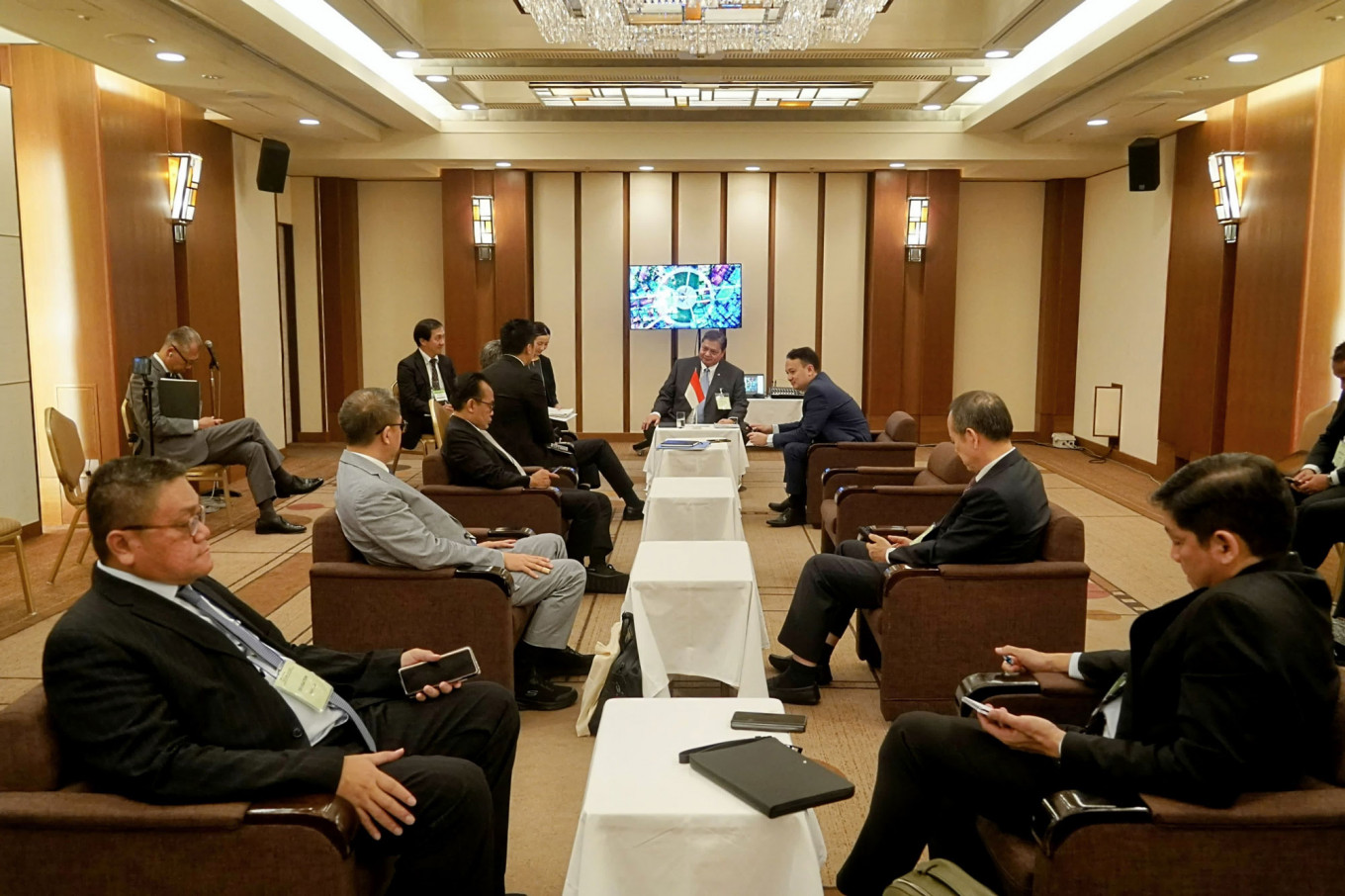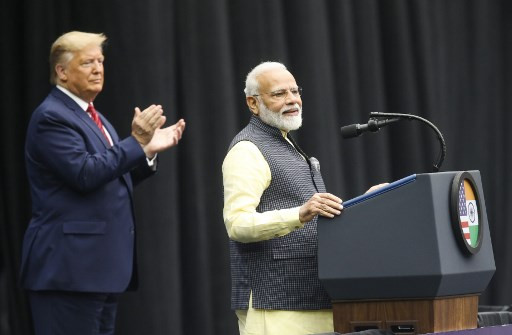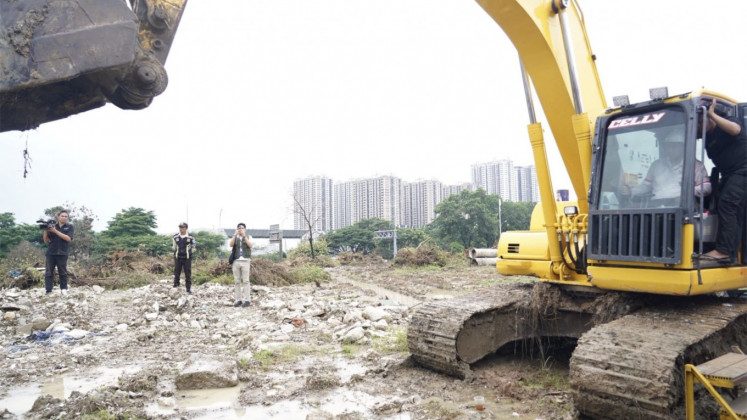Popular Reads
Top Results
Can't find what you're looking for?
View all search resultsPopular Reads
Top Results
Can't find what you're looking for?
View all search resultsMinister Airlangga discusses Indonesia's digital economy and OECD with Nikkei executives
Change text size
Gift Premium Articles
to Anyone
T
he global economic conditions, still marked by various challenges, have led several international institutions to project global economic growth in 2024 of around 3 percent year-on-year (yoy). Nevertheless, Indonesia's economic fundamentals continue to show stability, strengthening and stabilizing the country's resilience to global shocks. Indonesia's economic growth in the first quarter of 2024 was recorded at 5.11 percent yoy, with the inflation rate in April 2024 maintained within the target range of 2.5 + 1 percent, at 3 percent yoy.
"Indonesia is among the top-five G20 countries with economic growth of around 5 percent and also among the top-five countries with the lowest inflation, so we are quite confident in our ability to maintain these conditions," said Coordinating Economic Minister Airlangga Hartarto during a courtesy call with a senior executive of Nikkei Inc., Daisuke Arakawa, at the Imperial Hotel in Tokyo as part of the Nikkei Forum 29th Future Asia event on May 24.
During the meeting, Airlangga also highlighted Indonesia's digital economy, which is currently valued at US$90 billion and is expected to reach $130 billion by 2025. This aligns with the potential growth of the digital economy in the ASEAN region, which has a population of around 600 million. With the implementation of the Digital Economy Framework Agreement (DEFA), the value of the digital economy in the ASEAN region, initially estimated by various studies to reach $1 trillion by 2030, could increase to $2 trillion.
In addition to issues regarding cybersecurity in the use of digital technology, Minister Airlangga also emphasized that the availability of digital infrastructure remains one of the key issues in improving internet network availability. "I see that cybersecurity issues will always be a problem in the digital economy. As an archipelagic country, Indonesia cannot rely solely on fiber optics as a solution for providing internet networks across the entire country," said Airlangga.
When asked about the purpose of the visits of several global technology company CEOs to Indonesia, Airlangga stated that Indonesia had taken strategic steps by making the digital economy the next main engine of economic growth. "Indonesia is home to 10 unicorns and 2 decacorns," he said.
In the cordial meeting, Airlangga and Arakawa also discussed various other topics, including downstreaming, the planned visit of the Organisation for Economic Co-operation and Development (OECD) secretary-general to Jakarta, the market share of Indonesia's automotive market and the significance of OECD membership for Indonesia.
"Besides being able to escape the middle-income trap, joining the OECD will enable Indonesia to undertake a second phase of economic reform by calibrating with the best practices from other countries. Thus, we hope for increased investment into Indonesia," concluded Airlangga.
This article was published in collaboration with Coordinating Ministry for Economic Affairs Republic of Indonesia










